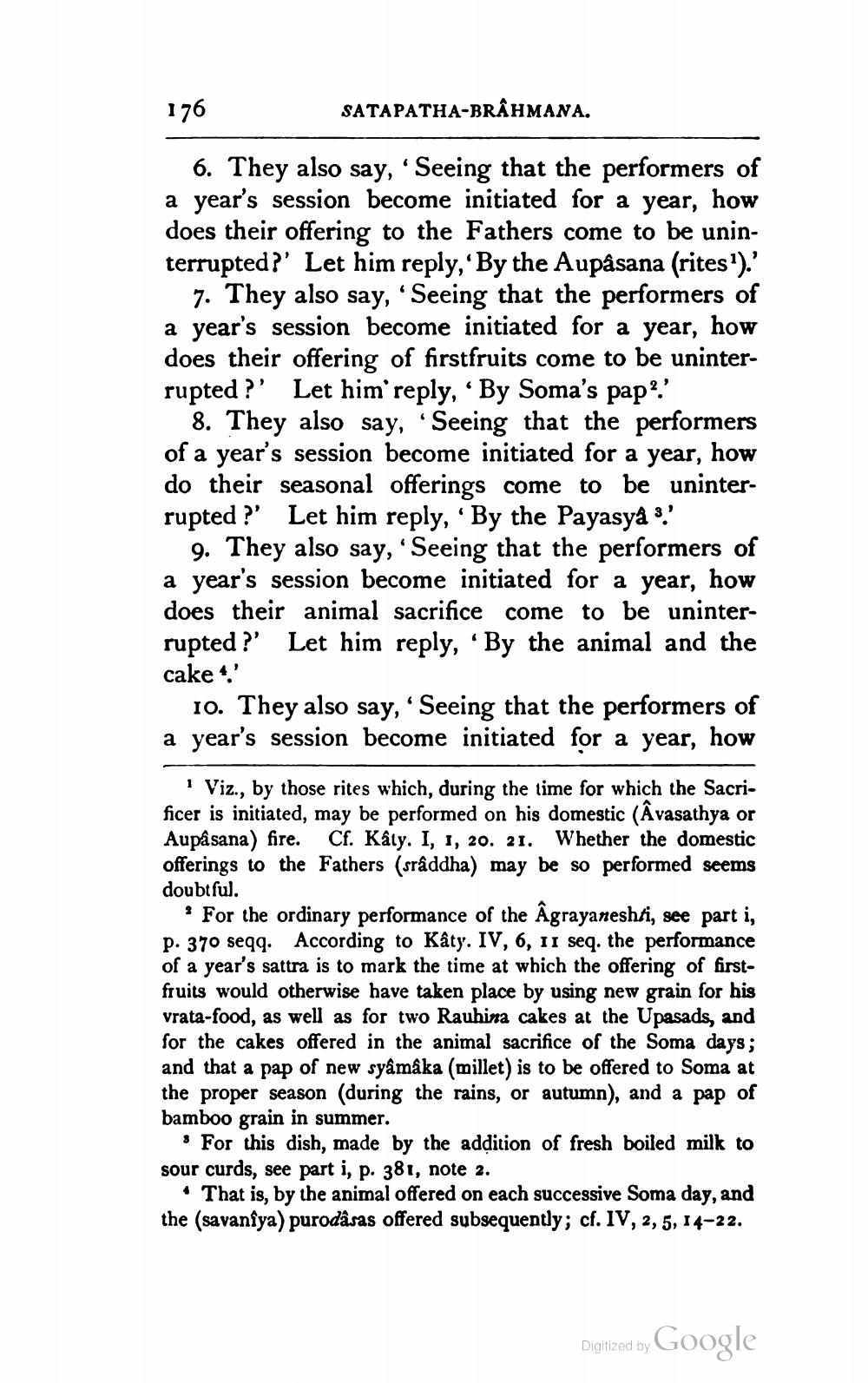________________
176
SATAPATHA-BRAHMANA.
6. They also say, 'Seeing that the performers of a year's session become initiated for a year, how does their offering to the Fathers come to be uninterrupted?' Let him reply,'By the Aupasana (rites").'
7. They also say, 'Seeing that the performers of a year's session become initiated for a year, how does their offering of firstfruits come to be uninterrupted ?' Let him reply, ‘ By Soma's pap?'
8. They also say, 'Seeing that the performers of a year's session become initiated for a year, how do their seasonal offerings come to be uninterrupted ?' Let him reply, By the Payasya 3'
9. They also say, 'Seeing that the performers of a year's session become initiated for a year, how does their animal sacrifice come to be uninterrupted ?' Let him reply, ‘By the animal and the cake
10. They also say, 'Seeing that the performers of a year's session become initiated for a year, how
1 Viz., by those rites which, during the time for which the Sacrificer is initiated, may be performed on his domestic (Âvasathya or Aupâsana) fire. Cf. Käly. I, 1, 20. 21. Whether the domestic offerings to the Fathers (srâddha) may be so performed seems doubtful.
* For the ordinary performance of the Âgrayaneshti, see part i, p. 370 seqq. According to Kâty. IV, 6, 11 seq. the performance of a year's sattra is to mark the time at which the offering of firstfruits would otherwise have taken place by using new grain for his vrata-food, as well as for two Rauhina cakes at the Upasads, and for the cakes offered in the animal sacrifice of the Soma days; and that a pap of new syâmâka (millet) is to be offered to Soma at the proper season (during the rains, or autumn), and a pap of bamboo grain in summer.
For this dish, made by the addition of fresh boiled milk to sour curds, see part i, p. 381, note 2.
· That is, by the animal offered on each successive Soma day, and the (savanîya) purodâ sas offered subsequently; cf. IV, 2,5,14–22.
Digitized by Google




